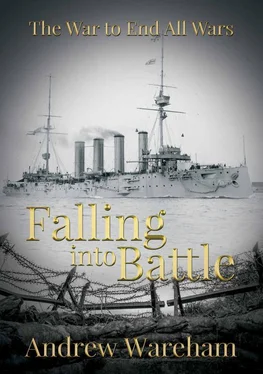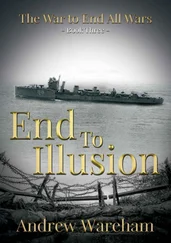“Thank you, Father.”
“My pleasure, my son. I want you to come with me to dinner tonight. Going across to old Packer’s place, with your mother and the girls. Wear your dress uniform.”
Packer owned the largest haulage firm in the county. His drays carried the iron goods from the works to the railway yard, among many other contracts. He actually possessed two steam lorries as well as his horse-drawn wagons. He had two sons of marriageable age and daughters as well, Richard recalled.
Richard thought at first that he was being put on display before Packer’s daughters. He was soon disabused of that idea.
“No need for you to primp and puff your chest out, boy! Packer knows you ain’t in the way of inheriting nothing! Or nothing much. Your cousin John will be put in the way of his third girl, when he’s old enough. The girl’s only fourteen now so she ain’t here in company tonight but she’ll do well for him – presentable and not too clever for her own good. We’ve agreed that. His eldest boy is looking our girls over, see if either meets his taste. Useful marriage for the family.”
“Then, why I am I here at all, sir?”
“To show off the uniform, you bloody fool! Soldiers are the great men just at the moment and Packer’s servants will pass the word that my son is off to war. Servants gossip and every big house in the county will know inside the week. Might get a contract or two on the back of it.”
“If I come back a major, Father, then I will be welcome in those big houses myself…”
“Might be. Worth thinking about, if you do. Ain’t seen any reason to suppose you’re good for anything yet.”
There was no answer to that, particularly because Richard himself had no reason to suppose he was good for very much. He remained quiet as the family and guests filed into the dining room, took his seat and ate a meal that might not have been out of place in a naval wardroom. Poorly cooked and bland - brown soup followed by roast beef and soggy vegetables and then custard and marmalade sponge pudding. The ladies left, in imitation of the gentry, and the men swigged at mediocre port wine. All the while, Richard tried to discover what he was good for.
He summed up all that was positive – he had stopped eating sugary sweets in the previous six months and was less fat and spotty as a result. The local girls said he was handsome, in fact, but they might be measuring him by the size of his wallet rather than any other attribute. He had taken a little of exercise and could now walk two or three miles without panting. He had learned his drill and discovered how to counterfeit the bearing of an officer, something he had never achieved at sea.
On the negative – he had made no attempt to earn his living and did not know how to do so. Even selling motor cars might demand more of him than he knew he could give.
For the future? He had no idea. He would try to make a good job of this fortuitous war, this opportunity to shine. He was in the right place, so it seemed. A Territorial officer attached to a regular battalion would be kept out of the way, he expected, would toddle along behind when the hard fighting commenced and could be seen bringing up the reserves as the battle was won. Afterwards, there would be vacancies to fill – officers would fall in the campaign and would need be replaced when peace came. Little doubt that he would make captain, and there was a small chance of climbing further up the military tree, if he was lucky.
The volunteers were thronging to the ranks and there would be a need for officers to command the new battalions. Common sense said these new men would be sent out to the Army of Occupation that would be needed to pacify Germany after her defeat. Four or five years could well see him as a major, which would be the ideal rank to attain. He could never expect to make lieutenant-colonel – the final regimental promotion demanded too much by way of a private income and connections. A major, though, was respectable and might look to be made Chief Constable or Chairman of a Hospital Board or something similar carrying a hefty pay packet and even more in the way of ‘expenses’.
By the time they rose from the table he had convinced himself that he was lucky – all had turned out for the best and his life was to be a shining success. He blessed the war that had come to rescue him.
The two platoons set out from the drill hall at the regulation march pace, officers at the head and Sergeant Grace bringing up the rear where he could whisper necessary commands to keep them together. They reached the sooty redbrick railway station and were paraded outside the doors for the mayor to give them a formal farewell, first of Kettering’s braves to go to the great adventure. The old gentleman took ten minutes to reach his peroration.
“First of the many! I salute you, one and all, and will welcome you home victorious before too many months have passed. Go you Heroes! Go to Victory!”
Richard considered it all just a little overblown, but the photographer for the newspaper was busy and he needed to display a stern and martial visage, for the benefit of his future.
The railway engine whistled and they marched at its command, the men entering their reserved third-class carriage, the pair of officers going to first, as was necessary, Smithers much excited to be part of his life’s very first adventure.
“I say, Baker, isn’t it terribly jolly! Aren’t we lucky to be first of all of the town to be given the chance! Do you think we should wave? My sister is watching, with my parents. My father has to find another usher to take my place at the school, but he doesn’t mind at all! He has brought the boys to farewell us, look!”
Richard peered at the assembled Smithers and decided he would not get to know the boy’s sister – a pallid, insipid creature! He could not imagine her squeaking underneath him in a bed.
They stood and saluted, thinking that was best. The crowd cheered again as they pulled away.
Thirty minutes took them to Bedford where they formed up on the platform and marched out onto Midland Road where there was a picket waiting for them.
Richard spotted a sergeant with a red armband, assumed he was Military Police and there to pass on the orders to newcomers.
“Territorials from Kettering, Sergeant.”
“Yes, sir.”
The sergeant gave his salute, endeavouring not to show his distaste for amateur gentlemen.
“Your half-company is to go out to the barracks, sir. You will be attached to the Third Battalion of the Bedfords which is currently forming, sir. First Battalion is in Jamaica, sir. Second is to form the barracks cadre. Third should entrain for Dover this afternoon, sir. My private will show you the way to the barracks, sir.”
“Very good. Thank you.”
It was not entirely forbidden to offer thanks to other ranks, but it was uncommon and was a sign either of a good officer or one who was unsure of himself. The MP gave Richard the benefit of the doubt.
Three quarters of an hour and the two platoons had been assigned a temporary barrack room and Sergeant Grace was discovering the agenda for the day. All had been organised to the minute and the men filed into the Armoury and were issued sixty live rounds and additional clips to load them in and were then sent to queue at the grindstone for a sharp on their bayonets. After that, they were to go to the mess hall and then to stores to pick up groundsheets, which were not standard issue for Territorials.
Richard and Smithers were escorted to the colonel’s office.
Lieutenant-Colonel Braithwaite greeted them briskly.
“Baker and Smithers! Kettering Drill Hall, Midland Brigade, Territorials. Welcome to the Regiment. At my arrangement, all of my officers are made regulars, although in your case with commissions for the duration of the hostilities. I have every expectation that you will show well and in such case your commissions will be made permanent – but that must wait a few weeks. Don’t want two sorts of officers in my mess – all gentlemen together, what?”
Читать дальше












